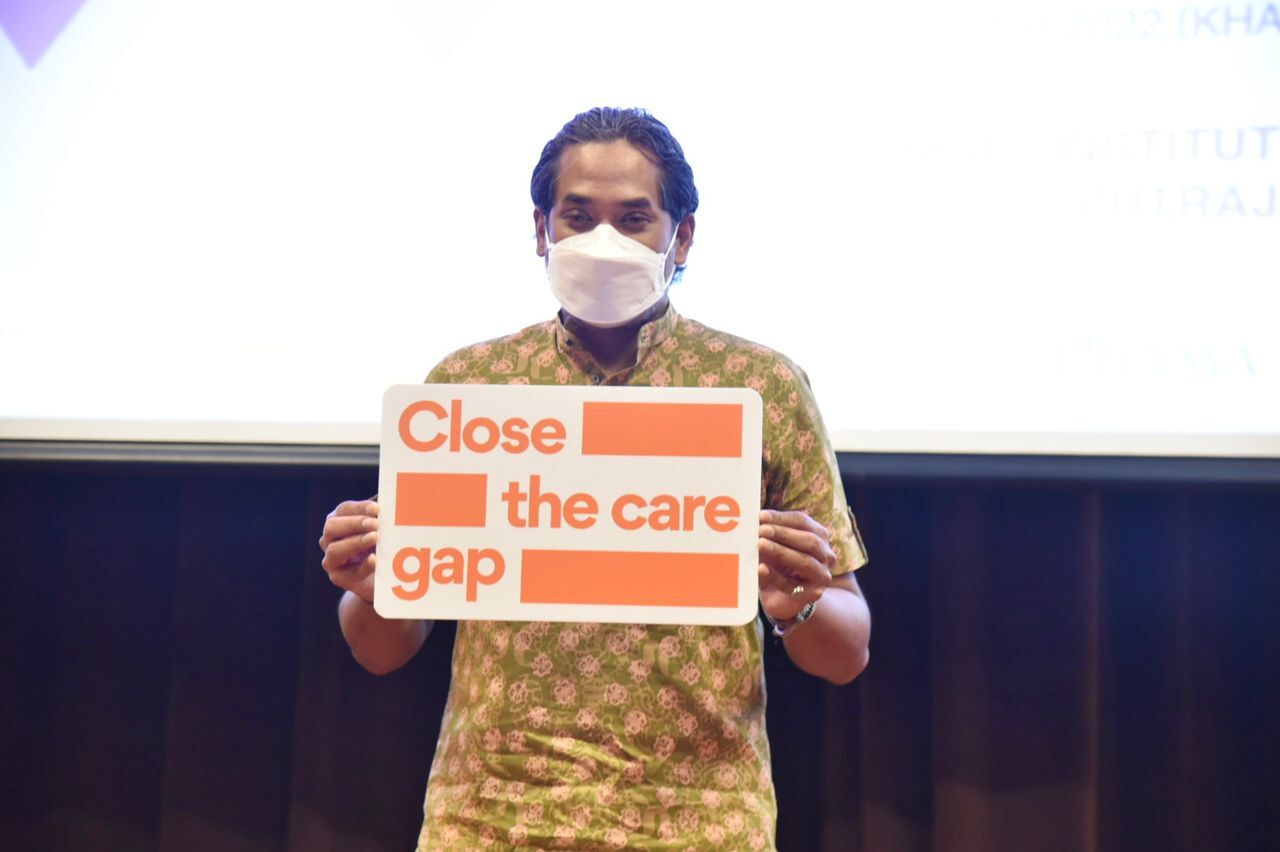KUALA LUMPUR, Feb 17 – Khairy Jamaluddin today acknowledged the lack of access to cancer treatment for low-income Malaysians and those who live in rural areas, amid rising cancer cases.
The health minister noted that Malaysia only has 128 oncology specialists, comprising 36 in the Ministry of Health (MOH), 14 in university hospitals, and 78 in private hospitals.
Of 36 cancer treatment centres nationwide, six are under MOH (Kuala Lumpur Hospital, the National Cancer Institute [IKN], Sultan Ismail Hospital in Johor, Penang Hospital, Likas Hospital in Sabah, and Sarawak General Hospital), four in university hospitals, and the remaining 27 in the private sector.
MOH does not have a cancer centre on the north and east coasts of the peninsula. Cancer patients on the east coast must go to Kuala Lumpur or Universiti Sains Malaysia Hospital (HUSM) in Kubang Kerian, Kelantan, for treatment in the public health care system.
For cancer patients in the north, Penang Hospital has specialists but no radiotherapy services. These must be outsourced to private hospitals. Rehabilitation and palliative care services in Penang Hospital are also insufficient.
“MOH provides the best and quality treatment and care for cancer patients. However, it must not be denied that there are inequalities in cancer care and treatment in this country,” Khairy said at MOH’s World Cancer Day 2022 launch at IKN in Putrajaya today.
“We must accept the fact that there are gaps in cancer care globally, including in our country. Every person should be able to receive equal care and treatment, including information related to cancer.
“Radiotherapy and oncology services are the main component in cancer treatment that must be improved, especially in terms of access and speciality. I know that most services are concentrated in the city centres and are difficult to access for patients who live far from the city or who live in the interiors. These services are also not easily accessible to low-income people.”
The health minister also acknowledged that the government-subsidised cancer screenings and other assistance offered by the Peka B40 health screening programme were insufficient.
“With the rising burden of NCDs (non-communicable diseases), including cancer, we need a reform of the health care system, and this includes reforming health care financing,” he said.
“The current health system, unfortunately, is not future-proof. That’s why I proposed a White Paper. It is my hope that all parties will support the White Paper that will be tabled and debated in Parliament later.”
Cancer cases in Malaysia rose 11 per cent from 103,507 cases in the 2007-2011 period to 115,238 cases in 2012-2016. It is estimated that one in nine women and one in 10 men may get cancer.
According to the Malaysia National Cancer Registry Report 2012-2016, cancer deaths increased 28.5 per cent from 64,275 recorded cases 2007-2011 to 82,601 fatalities 2012-2016.
Khairy cited the Statistics on Causes of Death 2021 published by the Department of Statistics Malaysia recently that showed cancer comprises 14.8 per cent of total deaths in 2020, the second highest after ischaemic heart disease at 17 per cent.
Malaysia has very poor cancer survival rates. Only 11 per cent of lung cancer patients survive at least five years from diagnosis. Relative five-year survival rates for other cancers in Malaysia are 51.1 per cent for colorectal cancer, 51.6 per cent for cervical cancer, 66.8 per cent for breast cancer, and 73 per cent for prostate cancer.
The majority of cancer cases in Malaysia at 63.7 per cent are detected in the late stages of Three and Four, affecting their prognosis.
The most common cancers in women are breast (33.9 per cent), followed by colorectal (10.7 per cent) and cervical (6.2 per cent) cancers. The top cancers in men are colorectal (16.9 per cent), lung (14.8 per cent), and prostate (8.1 per cent). Across gender, the most common cancers in Malaysia are breast (19 per cent), colorectal (13.5 per cent), and lung (9.8 per cent).
Khairy launched the National Strategic Plan for Cancer Control Programme (NSPCCP) 2021-2025 and another strategic plan specifically for colorectal cancer (NSPCRC) 2021-2025.
According to the executive summary, the NSPCCP aims to reduce cancer morbidity, mortality, and to improve the quality of life of cancer patients and their families. The overall targets are to enable cancer diagnosis at earlier stages, improve survival rates for certain cancers, and reduce premature mortality due to cancer.
The aim of the NSPCRC 2021-2025 is to control the colorectal cancer burden in Malaysia by improving early detection and diagnosis, enhance treatment outcomes, and reduce the socioeconomic impact of colorectal cancer in the country.








